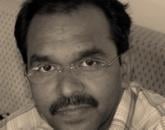
Invite you all to the National Level Seminar
In the traditional Indian society, the famous Indus valley civilization in which people settled near the banks of river Indus wherein the people lived in groups and in patriarchal family atmosphere. So there is a mutual support and concern and help for each other and lived under the guidance of the elders in the family. The value system was one of altruism and benevolent. The elders are respected in the society and the family earnings are happily shared. The modernization and the influence of the West came in, the situation in India also changed. The big collective families are segregated into small nucleus families and the discard of the aged started the crept into the social scenario. There was no place for the elder and the aged in the family decision making and wellbeing.
Today the widespread scene is one of dismay and neglect. There is nobody to look after the elderly and financial constraints, lack of security add to their woes. An increasing number of the elderly are now looking for employment, mostly for low wages, and under insecure and unhealthy working conditions. The most common type of abuse was physical, followed by acts of neglect or omission. Besides these, older people are abused in the form of neglect, violation of human, legal and medical rights and deprivation. As the society is moving from traditional to modern, from joint families to nuclear families, the increasing incidents of abuses are becoming common phenomenon. This changing global phenomenon, where by the traditional Indian social and family bonds are not as strong as seen in the past and elders are being marginalized.
In the developed countries, elderly people have the governmental support systems in the form of social security in which free or discounted medical care as well as institutionalized home care are provided. In the Indian subcontinent no such significant social security system to take care of the elderly are commonly available. Although the government has integrated many medical policies and pension schemes for the benefit of retiring government employees, the people work in the private sector as well as marginal labourers are often the victims of abuse due to economical constraints. Added to this, due to the declining death rates and better medical facilities, the strain of living in the old age has increased over time. There is also a prevalent belief among many that elderly persons are worthless in today’s fast-paced, globalized and increasingly industrialized world.
One of the major contributing and initiating factors for elderly is poverty and lack of income-earning opportunities, lack of access to care and healthcare, and social, economic exclusion. Poverty and poor health are inherently linked. Poverty is a cause of exclusion from information, services, and opportunities increases vulnerability and therefore poverty poverty results in poor health, and also greatly limits access to medicine and care, thus contributing to continuing poor health. Poor health in turn limits older people’s ability to earn money, thereby trapping them in a vicious cycle.
There is another way of harassing the elderly in India in the name of law. An abuser of law would find it pretty easy to crucify old people at home by taking undue refuge in law. False bogus dowry harassment charges are filed by miscreants targeting the elderly. It is because, a mere complaint is enough to arrest without investigation. Therefore, there is an increased urgency to address the rights and roles of elderly persons in our society.
There are also enormous amount of cases in which the children abuse their parents because they think that by harassing and depriving them of their basic needs they can force their parents to relinquish all property rights in their favour. Majority of cases on elder abuse at home are those where the perpetrator wants to grab the property of the elderly. This is evidenced by the fact that 47.3 per cent cases of Elder Abuse are reported to have children as perpetrators (Katyayani, 2008).

Comments should be on the topic and should not be abusive. The editorial team reserves the right to review and moderate the comments posted on the site.